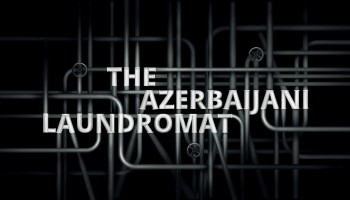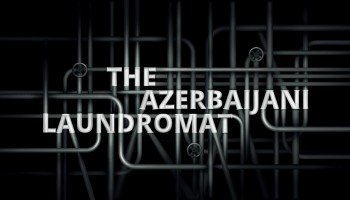Denmark’s biggest bank, Danske Bank, is alleged to have actively and knowingly helped highly questionable clients to elude the scrutiny of authorities, Danish newspaper Berlingske revealed on Thursday.
Reporters at Berlingske obtained a letter sent in February 2014 by Danske Bank’s internal auditors to two members of the bank’s executive board. The letter reportedly states that the Estonian branch of the Danske Bank had acted in clear breach of money-laundering regulations.
According to the Danish newspaper, Lars Mørch, the head of business banking, and Robert Endersby, chief risk officer – who has now left the bank – were told that the Estonian branch's staff had failed to identify the true owners of a number of companies whose accounts were channeling large amounts of money.
The letter comes on the heels of the Azerbaijani Laundromat investigation by the Organized Crime and Reporting Project and media partners.
The journalists found that from 2012 to 2014, Azerbaijan ran a secret US$ 2.9 billion slush fund through four shell companies registered in the United Kingdom. The cash was used to pay off influential Europeans to burnish the image of Azerbaijan’s ruling regime.
Danske Bank’s Estonian branch had merely registered the accounts of all four companies as belonging to British shell companies, which the auditors considered “inadequate” documentation under the anti-money laundering regulations.
“In relation to above, the Head of International Banking in the branch confirmed verbally (in the presence of all audit team) that the reason underlying beneficial owners are not identified is that it could cause problems for clients if Russian authorities request information,” the auditors wrote, Berlingske reported.
Anti-money-laundering regulations in Europe require financial institutions to ascertain the identities of their clients, monitor their transactions and report any suspicious activity to authorities to prevent criminals from using banks to distribute and “wash” their illegal proceeds.
Hans Kristian Skibby, a spokesperson for the Danish People’s Party, said the new information was “highly surprising” and told Berlingske, “It appears the top management had more serious knowledge about these issues than what the bank has so far acknowledged in its statements to us.”
The auditors further noted that the fact the companies had often been used by suspect clients from former Soviet republics should have triggered red flags.
Until now, Danske Bank chief executive officer Thomas Borgen had only admitted that the Estonia branch had lacked diligence in applying money-laundering controls.
“Although we leave it to the authorities to conclude whether money laundering did in fact take place, there is no doubt that we were not sufficiently effective in preventing our branch in Estonia from potentially being used for such activities. This of course is deeply regrettable and completely unacceptable,” the Danske bank's website states.
Nonetheless, Borgen had denied that employees at the bank knew of or helped their clients conduct illegal transactions.
Lisbeth Bech Poulsen, the spokesperson for the Socialist People’s Party, said that “these skeletons keep dropping out of the closet at Danske Bank. The bank has tried to portray this as just a case of sloppiness. Now we have evidence that they broke the rules with their eyes wide open.”





